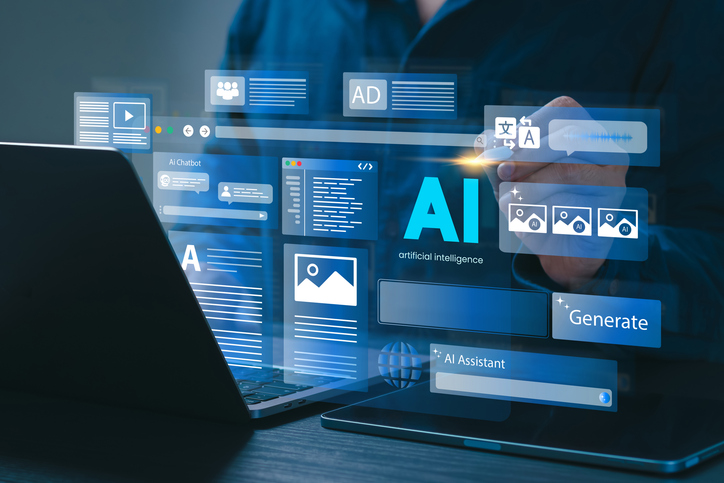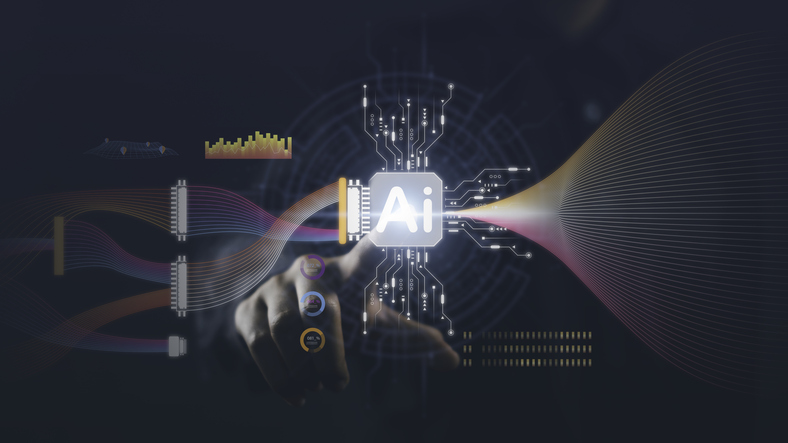Artificial Intelligence is revolutionising the way industries operate, and its impact can be seen across many different types of businesses. After many years of waiting in the wings, the real-world applications of AI are finally being revealed, and the waves that are being made are palpable. The truth is that AI has been enabling businesses to achieve greater efficiency, cost savings, and enhanced customer experience for many years now. The only difference we can see is in the level of maturity from these tools and the awakening of the public as to how their prevalence will impact life as we know it. So, now might be a timely moment to explore how AI is already being applied across various industries and what successful application might mean for each of them.

Retail
One of the most significant benefits of Artificial Intelligence in the retail industry is its ability to personalise customer experience. We have all experienced AI algorithms in the way online retail businesses analyse customer data to understand their preferences and purchasing patterns – think Amazon’s ‘because you liked X’ method of curating endless items of potential interest to its customers. Of course, it doesn’t stop there. AI is also used to optimise inventory management and supply chain operations, leading to cost savings and improved efficiency – something we can expect to see a lot more of with the rise of IoT.
Healthcare
Artificial Intelligence is transforming the way healthcare works in many countries, patients around the world are already experiencing improved care and better outcomes thanks to the shift in point-of-diagnosis. Only last week, the UK’s National Health Service announced their intention to shift to home-scans for breast cancer, rather than the current regular mammograms. This represents an immense opportunity to alleviate the workload of hospitals, and to redirect the attention of healthcare professionals to more impactful areas. We can also see the beginnings of change in personal healthcare information – AI algorithms can now analyse vast amounts of medical data to identify patterns, predict outcomes, and assist in the diagnosis of diseases. The impact this will have on patient outcomes and early-stage intervention – and the overall quality and longevity of life is hard to overstate.
Banking and Finance
We’ve born witness to huge changes in the way banks and financial institutions operate in the last 10 years. AI is transforming how we manage money by offering improved security, enhanced fraud detection, and personalised customer service. Of course, while this is a highly competitive field, TradFi is also hemmed in by regulation, making it susceptible to development in fits and starts as those frameworks adapt. However, the rise of cryptocurrencies and DeFi represent something of a sandbox for the financial tools of tomorrow.
Manufacturing
Artificial Intelligence, in tandem with IoT, has the potential to revolutionise the way the manufacturing industry works by enabling predictive maintenance, optimising production, and improving quality control. AI algorithms are already able to analyse vast amounts of data to predict machine failures, reducing downtime and improving productivity. What will be interesting to see is how production processes will be joined together at a global level by crunching real-time data beyond the limits of each individual point in the supply chain.
Transportation
We’re still at the beginning of the long-awaited journey towards autonomous vehicles, and, as with finance, the transportation industry is subject to heavy regulation. But there is still a lot happening here. AI algorithms are already optimising routes and scheduling – slashing costs and improving efficiency. And on top of that, Artificial Intelligence can be applied along with the power of IoT to analyse real-time data from sensors in order to identify maintenance needs, reduce downtime and increase reliability. As we know, with the perilous state that our planet’s ecosystems are in, anything which helps us to meaningfully reduce damage can’t come soon enough.
Marketing
I had the opportunity to play around with a few AI design tools recently, and was absolutely shocked by the quality of the results. The current rise of tools like MidJourney has sparked a huge debate about the value of human art Vs AI-generated art. But what nobody seems to be discussing is how these tools will impact the marketing industry. There are already tools out there which can understand customer briefs, and generate entire brandbooks – along with every type of file, banner, palette, or graphic element you might need – in the blink of an eye. Considering the amount of money that top marketing companies command, this must represent a very tempting alternative, particularly for SMBs.
Education
The education system has always held constancy in high regard, which is entirely understandable, but it does make it rather slow to reform. However, AI is working its magic in classrooms and staffrooms around the world. Personalised learning paths for students in crowded classrooms, improved student engagement thanks to beautifully-designed apps which can adjust to different learning styles, and better student outcomes are all on their way. This is also an incredible way to empower teachers by taking the tedium out of tasks such as marking and writing feedback, leaving them more free time to do what they do best – inspiring their students, honing critical faculties, and cultivating a lifelong love of learning.
As we can see, AI is already delivering changes, some of which we may be unaware of, to revolutionise various industries and types of businesses. It’s transforming the way businesses, institutions, and collectives operate. The rewards for those who push forward are often cited as being things like improved efficiency, cost savings, and enhanced customer experience. However, it is arguable that the real rewards will be evidenced in the time we gain to focus on that most wonderful of all experiences – being human.


